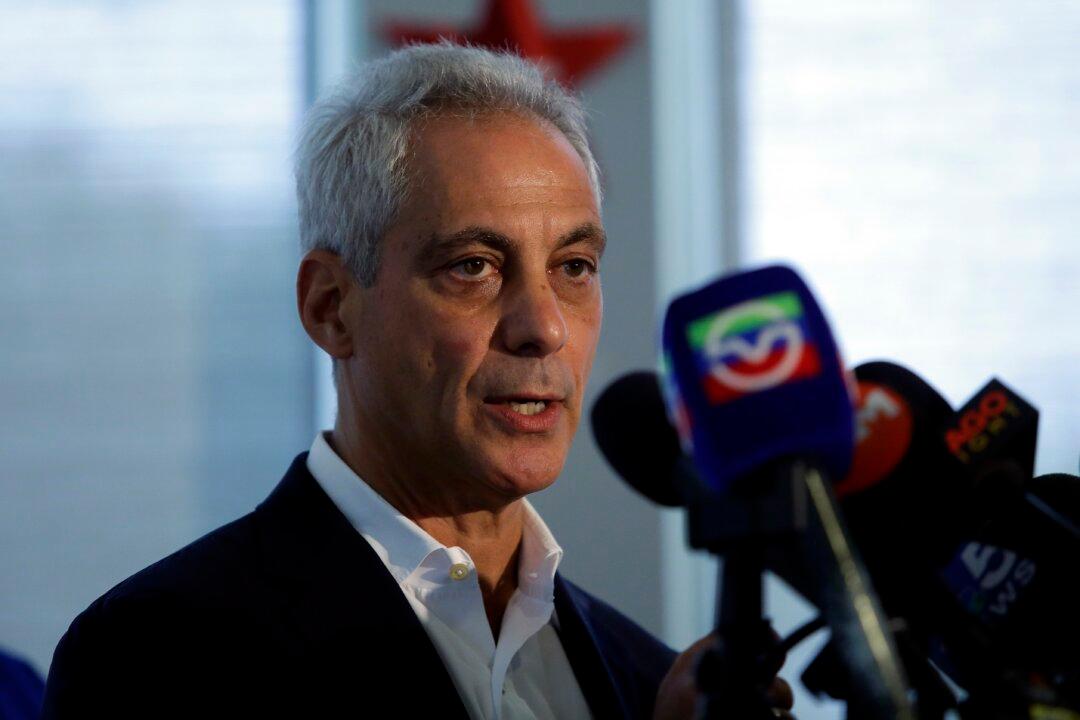CHICAGO—Mayor Rahm Emanuel laid out a plan on Dec. 12 to infuse cash into Chicago’s huge—and expensive—pension system. He urged the city council to approve the issuance of $10 billion of bonds to temporarily alleviate the fiscal burden of the city’s four retirement systems.
Emanuel, who leaves office in May after declining to run for a third term as mayor, also called for changing the Illinois Constitution and earmarking new revenue from a possible casino and legalized marijuana for pensions.





